Last Updated on January 7, 2024 by Gamesver Team and JC Franco
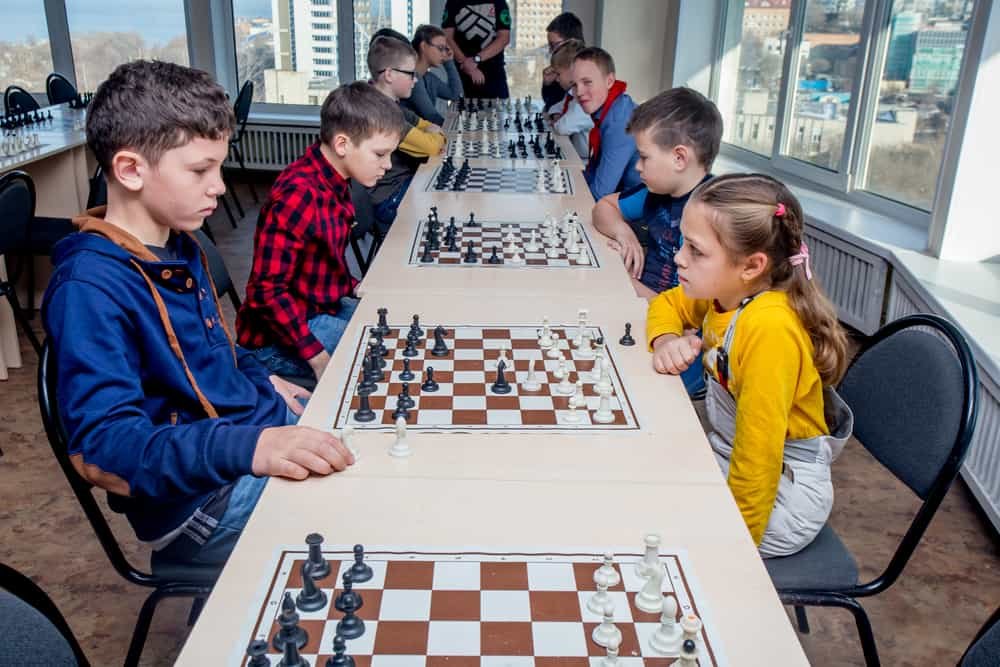
As parents, we all want the very best for our kids. We make every effort to get them involved in sports and other activities that will be enriching to their childhood while developing life skills that transcend into adulthood! Right now, you may be wondering to yourself, ‘should my kids be playing intellectual games such as chess?’
There are several reasons why your kids should play chess. By playing chess, kids can improve and develop cognitive skills, including memory, logical thinking, critical thinking, concentration, problem-solving, and visual processing. It also helps them develop life skills such as creativity, verbal communication, reading comprehension, self-discipline, self-confidence, and sportsmanship.
Next, we’ll explore these ideas further. We will look at each way chess benefits children and review them individually in detail. So, if you’re ready to learn the 15 reasons (and counting) why your kids should play chess, then let’s get started!
These are 15 reasons why your kids should play chess.
1. Exercises the Brain.
Playing chess requires a complete mental workout! It’s no coincidence that the greatest chess masters in the world are also intellectual geniuses! Chess utilizes the entire brain, developing both the left and right hemispheres, which is crucial for young minds.
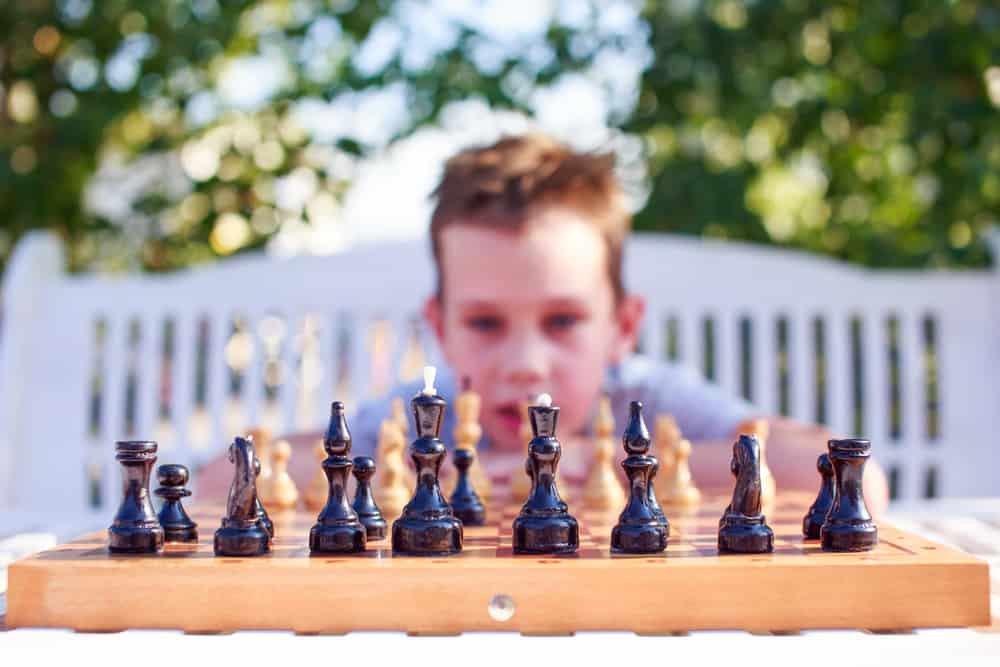
2. Grows Dendrites.
Dendrites are like antennas that transmit signals from the brain to the body. Learning to play chess at a young age encourages dendrites to grow and progress physically! The more children play the game, the better (and quicker) their cognitive skills develop.
3. Improves Spatial Skills.
Being able to calculate moves ten steps ahead and determine the possible outcomes of each move is a form of spatial skill development. Kids who play chess develop this skill early on, improving their ability to visualize, analyze, and manipulate objects in space.
4. Increases IQ Level.
A previous study in Venezuela has shown that students who played chess regularly scored significantly higher IQ scores than students who didn’t play after just 4 months of participation. This is further proof that playing the game increases a child’s intelligence quotient considerably.
5. Improves Problem-Solving Skills.

Problem-solving skills are vital for school-aged children and help them achieve success in a variety of subject areas, including math and science. Teaching kids how to recognize, analyze, and solve problems is the best way to impart independence, self-confidence, and maturity in youngsters.
6. Improves Memory.
Chess is a game of strategy, with pieces that move in specific patterns. These patterns must be memorized in order to play. Training the brain to remember and retain information gives it strength. This is crucial to expanding knowledge and developing young minds.
7. Increases Creativity.
A one-year study from Karunya University, with support of the Indian government, found that children who played chess scored significantly higher in areas like creativity and originality. This is essential for youngsters as it fosters mental growth and provides opportunities for new ways of thinking and problem-solving.
8. Improves Concentration.
Playing chess is an excellent way for kids to take a break from ‘information overload’ and immerse themselves in a fun and enriching game. It requires complete focus, so kids would have to concentrate on the game, instead of checking their phones every time.
9. Improves Reading Skills.

In 1991, Dr. Stuart Marguiles studied the reading performance of 53 elementary school students who participated in a chess program. He determined that playing chess showed definitive proof that the kids in the program improved their reading performance, testing higher than the national average!
10. Improves Verbal Skills.
I know what you’re thinking, how could playing chess possibly improve verbal skills when players barely engage one another! Well, Dr. Albert Frank studied children receiving chess instruction for 2 hours a week and the game, which is basically language-independent, improved verbal skills significantly by exercising brain functions related to language, such as logic.
11. Teaches Self-Discipline.
Chess is a game of strategy. Players must be patient, bidding their time, and waiting for just the right moment to attack! This teaches kids how to be patient and stay focused both on and off the board. Self-control is a vital skill in life, and playing chess will help encourage it.
12. Teaches Sportsmanship.
Chess teaches not only sportsmanship to kids but also life skills for success in the future. The nature of the game is such that is requires discipline, patience, creativity, forethought, and strategic planning. The game rewards its players of making right decisions and staying focused. All of which translates into future real-life skills needed in adulthood.
13. Gets Kids Offline.
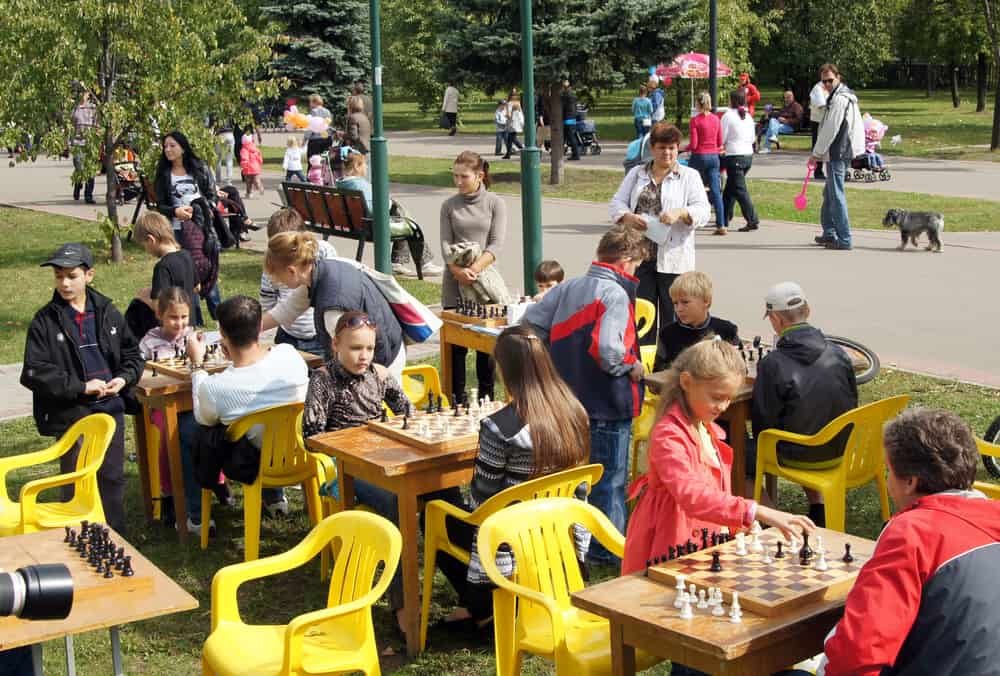
We live in a technological age, as all parents know, dominated by video games, TV, the internet, and cell phones. Getting kids to play chess is a great way to get them offline. It allows them to unplug from the devices and engage in real-life, educational gameplay.
14. Builds Self-Confidence.
Being able to beat an opponent at a game that requires genuine skill, not luck, especially if the other player is older, is a great way for children to boost their self-esteem. It has been proven that in just one year of exposure to chess, self-esteem in youngsters is substantially improved.
15. Imparts Joy and Fun.
Fun is a big part of childhood, and playing a game like chess creates happy memories of good times with friends and family for kids. Best of all, it is imparts joy and the thrill of discovering something new. After all, it is fun that motivates youngsters more than anything else!
These examples outlining the importance of teaching chess to children are just the tip of the iceberg! There are many other reasons why it is a great game for kids of any age to learn. In fact, children as young as 4 or 5 years old can study the game, as long as they show an interest and are paired with people they enjoy playing with.
How Do You Motivate a Child to Play Chess?
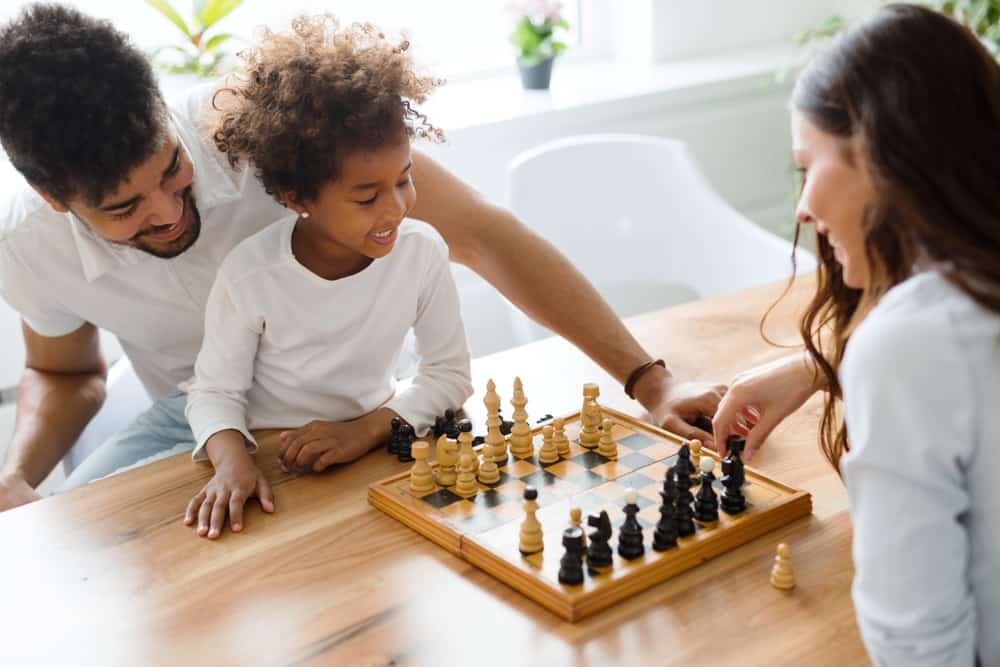
Here are a few suggestions to get kids interested in chess.
Start Early
The best age to start playing chess is 4 or 5. One-hour practice sessions per week for the first two years is sufficient. By the time your child is 6 years old, he/she will stand out among his/her peers while demonstrating a higher level of concentration and mathematical ability.
Make It Interesting
Never force a child to play. If there is no desire, there is no point! However, if your child seems interested in the game, begin with a combination of theory and practice, so he/she can acquire the basic skills of the game before moving on to tactical maneuvers and strategies.
Keep it Fun
Try telling jokes or stories while teaching chess. For example, turn the game into a fairy tale or a battleground with the pieces representing different characters, depending on the age of the child, of course. If you can make it interesting and enjoyable, kids will be more inclined to learn.
Practice Often
Chess, like a sport, must be practiced in order to achieve success. Kids could practice around 1 to 2 hours a day (just like they would any sport) if they are truly serious about the game. The best part of all is that even those who lack talent can still reach their goals with diligent practice.
Be Encouraging
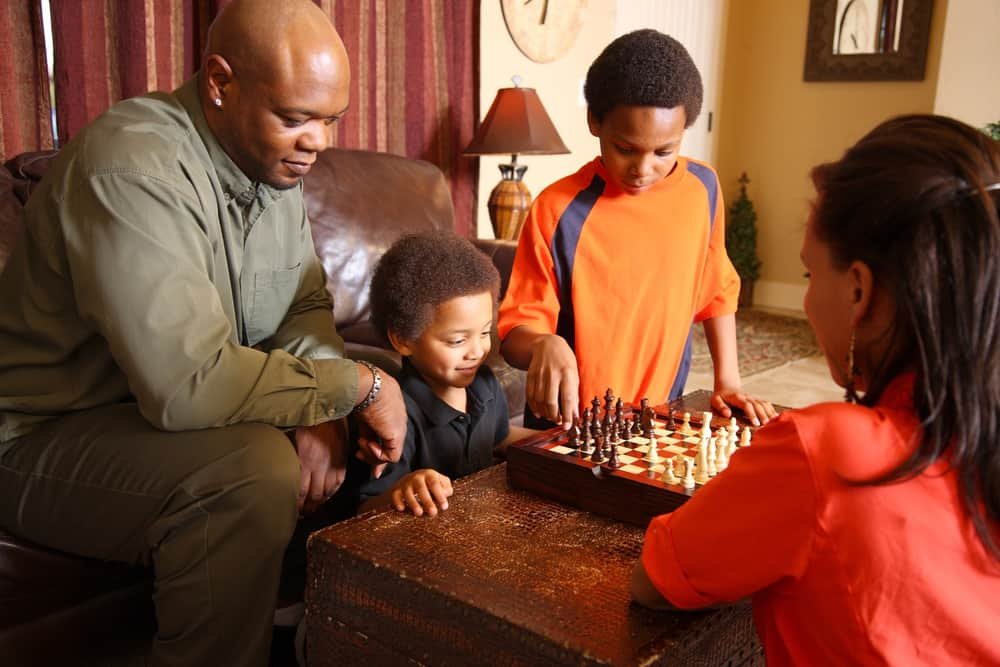
Give praise when it is due. Compliment your child and recognize his/her accomplishments, no matter how big or small. This will encourage him/her to keep learning and improving. Allow your child to make mistakes and emphasize the importance of pushing through even when things get difficult.
Play With the Best
If your child is serious about the game, he/she could participate in competitions within the first 2 years. Playing against other, stronger opponents will push them to the limits of their abilities and improve their overall performance.
Last word
So, with all being said, go ahead, and encourage your children to learn chess at a young age and watch them excel, in both school and life! Good luck, fellow gamers.

